HS-ETS1-2
Design a solution to a complex real-world problem by breaking it down into smaller, more manageable problems that can be solved through engineering.
-
 Physics
PhysicsHow much fruit can you pull from a display before it topples?
About 10 percent of the fruit in a tilted market display can be removed before it will crash down, computer models show.
-
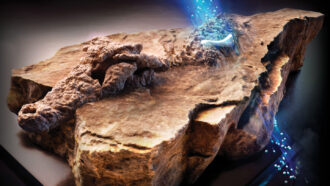 Physics
PhysicsNeutrons are unveiling hidden secrets of fossils and artifacts
Images made with these particles have revealed details of dinosaur bones, mummies and more.
-
 Physics
PhysicsBefore the ancient Egyptians, nature may have carved sphinxes
Steady ‘winds’ can carve clay blobs into lion-shaped landforms called yardangs, a new study suggests. One such yardang may have inspired the Great Sphinx of Giza.
By Elise Cutts -
 Physics
PhysicsExperiment: Where does a bouncing basketball’s energy go?
Let’s explore whether energy loss to heat could explain why a basketball doesn’t bounce back to its original height.
-
 Tech
TechLet’s learn about flying drones for science
Airborne robots help researchers keep tabs on wildlife, agriculture and more.
-
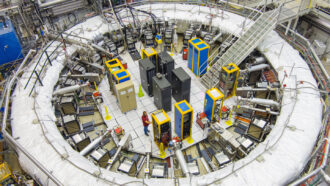 Physics
PhysicsScientists Say: Muon
Tracking muons raining down on Earth can reveal new details of pyramids, volcanoes and thunderstorms.
-
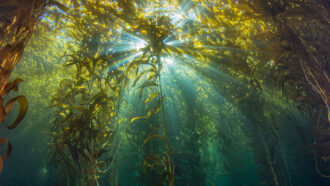 Ecosystems
EcosystemsRestoring giant underwater forests, one blade at a time
Giant kelp are at risk due to climate change and human activities. In New Zealand, a community effort is rebuilding these underwater algal forests.
-
 Physics
PhysicsHeat makes water evaporate. Now it appears light can, too
In the lab, shining light on water made it evaporate faster. This never-before-seen effect, if real, might be happening naturally all around us.
-
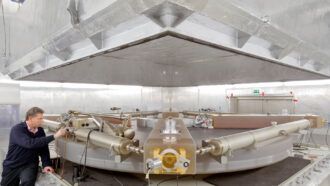 Physics
PhysicsA new tool shows tiny changes in the ’24-hour’ length of a day
An underground instrument known as ‘G’ uses laser beams to measure Earth’s rotation — a gauge of day length — with extreme precision.
-
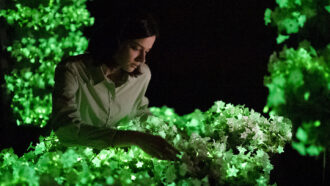 Tech
TechBionic plants and electric algae may usher in a greener future
Some can aid the climate by removing pollutants. Others would just avoid dirtying the environment in the first place.
-
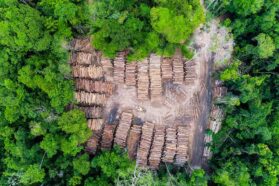 Earth
EarthAnalyze This: Tropical forests have gotten patchier
Although many of the world's forests have gotten less fragmented since 2000, tropical forests have gotten more chopped up, putting animals at risk.
-
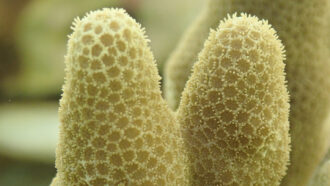 Animals
AnimalsAdult corals have been frozen and revived for the first time
Living corals could be frozen for safekeeping. Scientists could later revive them to restore reef ecosystems that are withering in warming seas.
By Nikk Ogasa